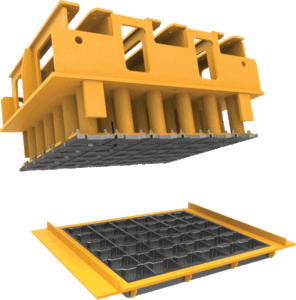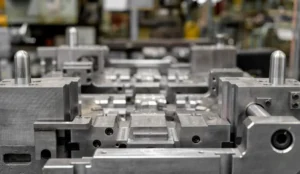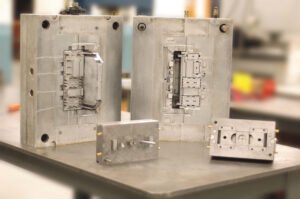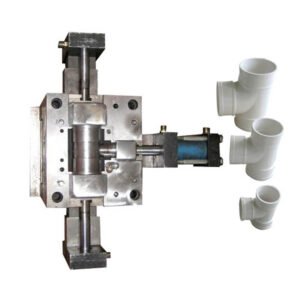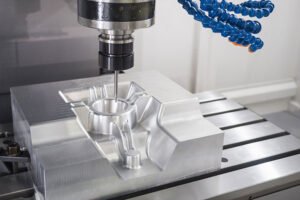Injection mold manufacturing is a cornerstone of modern production, providing essential components for industries ranging from automotive to consumer electronics. One of the key factors that sets successful mold manufacturers apart is precision. In this article, we explore why precision is critical in injection mold manufacturing and how it impacts the quality and efficiency of production processes.
What is Injection Molding?

Injection molding is a manufacturing process used to produce parts by injecting molten material into a mold. This technique is ideal for producing large quantities of identical parts with high accuracy. The process involves creating a detailed mold, usually made from steel or aluminum, that forms the shape of the final product. Once the mold is ready, materials such as plastic, metal, or glass are melted and injected into it, then cooled and solidified to form the final part.
The Role of Precision in Injection Molding
Precision in injection molding is paramount for several reasons:
- Product Quality: High-precision molds ensure that every part produced meets exact specifications. This is crucial for maintaining consistent quality, especially in industries like medical devices and electronics, where even minor deviations can affect performance and safety.
- Efficiency: Precision molds reduce the likelihood of defects and waste, leading to more efficient production processes. This not only saves time but also reduces material costs and increases overall productivity.
- Durability: Precise molds are designed to withstand high-pressure injection processes, ensuring longevity and durability. This is particularly important for high-volume production runs, where molds are subjected to repeated use.
- Complexity: Modern products often require intricate designs with fine details. Precision molding allows for the creation of complex parts that meet stringent design requirements, enabling innovation and creativity in product development.
Achieving Precision in Mold Manufacturing
Achieving precision in injection mold manufacturing involves several key steps:
- Advanced Design Software: Utilizing CAD and CAM software allows for the creation of detailed and accurate mold designs. These tools enable designers to simulate the molding process and identify potential issues before production begins.
- High-Quality Materials: Using premium materials for mold construction, such as hardened steel or aluminum, ensures that molds maintain their shape and accuracy over time.
- Precision Machining: CNC machining and other advanced manufacturing techniques are employed to produce molds with exact specifications. These technologies offer high levels of accuracy and repeatability.
- Quality Control: Rigorous quality control measures, including inspection and testing, are essential to verify that molds meet the required standards. This includes dimensional checks, material analysis, and performance testing.
The Future of Precision in Injection Molding
The future of precision in injection mold manufacturing looks promising, with ongoing advancements in technology and materials. Innovations such as 3D printing and AI-driven design optimization are set to further enhance the precision and capabilities of injection molds. These technologies offer new possibilities for rapid prototyping, customization, and efficient production processes.
Ensuring Consistency and Quality:
Precision in injection mold manufacturing ensures that every part produced from a mold is consistent and meets the required specifications. This consistency is vital for maintaining the quality of the final product, especially in industries where even the slightest deviation can lead to significant issues. For example, in the medical industry, precision is crucial for producing components that must meet strict regulatory standards and function flawlessly. Similarly, in the automotive industry, precise molds are essential for parts that must fit perfectly and perform reliably under various conditions.
Reducing Waste and Costs:
One of the significant advantages of precision in injection mold manufacturing is the reduction of material waste. When molds are created with high precision, the parts produced require minimal post-processing, such as trimming or finishing. This efficiency leads to less material wastage and, consequently, lower production costs. Additionally, precise molds reduce the likelihood of defects and rework, which can be time-consuming and expensive. By minimizing waste and improving efficiency, manufacturers can achieve cost savings and enhance their overall profitability.
Enhancing Product Performance:
The performance of the final product is directly influenced by the precision of the molds used in its production. High-precision molds ensure that parts have accurate dimensions, proper alignment, and smooth surfaces, which contribute to the overall functionality and durability of the product. For instance, in the electronics industry, where components must fit together seamlessly, precision molds are essential for ensuring reliable performance and preventing assembly issues. Similarly, in consumer goods, precise molds result in products with superior aesthetics and tactile qualities.
Utilizing Advanced Technologies:
Achieving precision in injection mold manufacturing requires the use of advanced technologies and techniques. Computer-aided design (CAD) and computer-aided manufacturing (CAM) software play a crucial role in designing and producing precise molds. These digital tools allow engineers to create detailed and accurate mold designs, which are then translated into machine instructions for CNC (computer numerical control) machines. CNC machines can produce molds with exceptional precision, ensuring that every detail is accurately replicated.
Implementing Quality Control Measures:
Quality control is an integral part of maintaining precision in injection mold manufacturing. Rigorous inspection and testing processes are essential to ensure that molds meet the required specifications and standards. Techniques such as coordinate measuring machine (CMM) inspections and laser scanning are used to verify the accuracy of molds and identify any deviations. By implementing strict quality control measures, manufacturers can ensure that every mold produced meets the highest standards of precision and quality.
Conclusion
Precision is a critical factor in injection mold manufacturing, impacting product quality, efficiency, durability, and the ability to produce complex designs. At Mold Technology, we are committed to delivering high-precision mold solutions that meet the diverse needs of our clients. Our expertise, advanced technologies, and stringent quality control ensure that every mold we produce is of the highest standard, driving success in your manufacturing processes. Contact us today to learn more about our precision injection mold solutions and how we can support your production goals.

